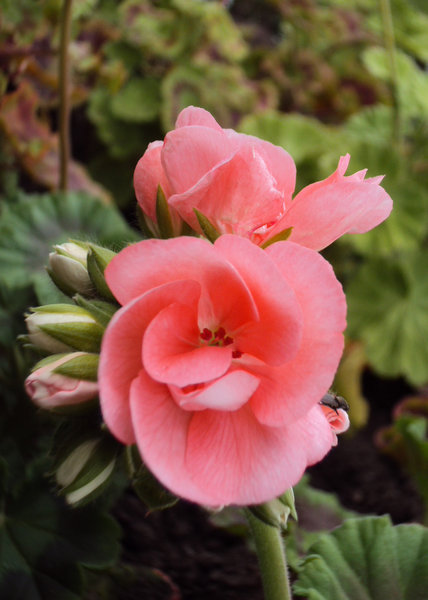 Tropical houseplants are known for their stunning beauty and unique characteristics. From the striking leaves of the Monstera deliciosa to the vibrant flowers of the Anthurium, tropical plants add a touch of lushness and luxury to any room. Their exotic origins, with many hailing from tropical regions such as Southeast Asia, South America, and Africa, make them a captivating addition to any indoor space.
Tropical houseplants are known for their stunning beauty and unique characteristics. From the striking leaves of the Monstera deliciosa to the vibrant flowers of the Anthurium, tropical plants add a touch of lushness and luxury to any room. Their exotic origins, with many hailing from tropical regions such as Southeast Asia, South America, and Africa, make them a captivating addition to any indoor space.
Furthermore, the presence of houseplants has been linked to a range of mental health benefits, including reduced stress, improved mood, and increased productivity. The act of caring for plants can be meditative and therapeutic, providing a sense of purpose and connection to nature. In a world increasingly dominated by screens and technology, tropical houseplants offer a welcome respite and a chance to reconnect with the natural world.
2. Bird of Paradise (Strelitzia reginae): With its striking orange and blue flowers that resemble a bird in flight, the Bird of Paradise is a tropical plant that makes a bold statement in any room. It requires bright, indirect light and regular watering to thrive indoors.
No matter what style of garden design you choose, the key is to create a space that is both functional and beautiful. By carefully planning and selecting the right plants, hardscaping features, and overall style, you can create a garden that enhances your home and provides a peaceful retreat for you and your family.
Furthermore, the accessibility of 3D garden design software has increased, with many programs now available online or as downloadable apps. This convenience makes it easier than ever for designers and homeowners to experiment with different ideas and collaborate on projects, no matter where they are located.
4. Fertilization: Tropical houseplants benefit from regular fertilization during the growing season to promote healthy growth and vibrant foliage. Use a balanced, water-soluble fertilizer once a month or as directed on the packaging.
In addition to their aesthetic appeal, tropical houseplants offer a range of benefits for both physical and mental wellbeing. Studies have shown that indoor plants can help to purify the air, removing toxins and pollutants and improving air quality. Tropical houseplants, with their large leaves and rapid growth, are particularly effective at filtering out harmful substances such as formaldehyde, benzene, and xylene.
In conclusion, tropical houseplants are a wonderful addition to any indoor space, offering beauty, benefits, and a connection to nature. Whether you are looking to improve air quality, boost mental well-being, or enhance productivity, tropical houseplants are a versatile and rewarding choice. By selecting the right plants, providing them with proper care and maintenance, and enjoying the beauty and benefits they bring, you can create a lush and vibrant indoor oasis that will delight and inspire you for years to come.
Another important consideration in garden design is the overall style of the garden. There are many different garden styles to choose from, including formal, informal, contemporary, traditional, and cottage garden designs. Each style has its own unique characteristics and can be tailored to suit your personal taste and the architecture of your home.
When it comes to designing a garden, there are several key elements to consider. These include the layout, plants, hardscaping features, and overall style. By carefully planning and combining these elements, you can create a garden that reflects your personality and enhances the beauty of your home.
One of the key principles of garden design is the use of focal points. Focal points are elements that draw the eye and create visual interest in a garden. These can include a beautiful tree, a sculpture, a water feature, or a striking plant arrangement. By strategically placing focal points throughout your garden, you can create a sense of balance and harmony in the space.
One of the key benefits of tropical houseplants is their ability to purify the air. In today’s increasingly polluted world, indoor air quality is a growing concern for many people. Tropical houseplants, however, act as natural air purifiers by absorbing toxins and emitting oxygen, creating a healthier living environment for inhabitants. Plants such as peace lilies, spider plants, and snake plants are particularly effective at removing common indoor pollutants like formaldehyde, benzene, and trichloroethylene.
Formal garden designs are characterized by geometric shapes, symmetry, and structured plantings, while informal designs are more relaxed and natural, with curving pathways and mixed plantings. Contemporary garden designs often feature clean lines, minimalistic plantings, and modern materials, while traditional designs are inspired by historical gardens and feature classic elements such as topiaries, formal hedges, and statuary.
In addition to improving air quality, houseplants can also offer a number of health benefits. Studies have shown that indoor plants can help to reduce the incidence of colds, sore throats, and other respiratory ailments by increasing humidity levels and removing airborne pathogens.